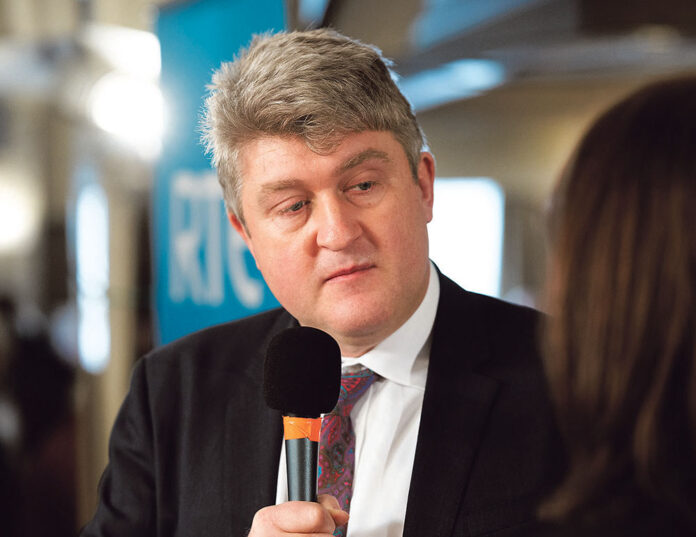TWO Clare TDs argued in the Dail last week for a change in Ireland’s approach to illegal drugs with one advocating their legalisation.
While praising the excellent gardai successes against major criminal gangs, he argued that current legislation is not fit for purpose, and claimed that drugs are now everywhere in a way that wasn’t the case when he was a student.
Listing high profile wins against organised criminal gangs such as the Collopys, the McCarthy Dundons, George Mitchell and John Gilligan he asked, “Has all of this led to the war on drugs being won?
“Are there no more drugs on our streets? No, there are far more drugs on our streets, and they are in every community in Ireland. They are in every village in Ireland now – Bodyke, Scariff – every town and village in Ireland now has a thriving drugs trade.
“I question the waste of Garda resources chasing these people. They are evil and the trade is very much in their hands, and they are making money out of it, but the answer is not to continue to chase them, it is to take the trade out of their hands, to legalise drugs and to deal with the fact that there is a huge and growing market for drugs.”
“That is a health issue, and it must be dealt with in the same way that we deal with the appetite and demand for every other substance – cigarettes, alcohol, etc., instead of fighting a losing war, which we are very clearly losing, despite the best efforts of the Garda.”
Deputy McNamara said that his views have been greatly influenced by a book written by Tim Murphy, who lectured Deputy McNamara on law at UCC.
The Scariff TD said, “He wrote a very short book that was published the year I left UCC. I obviously read his book, which informed my thinking very much from then on.
“It is called Rethinking the War on Drugs in Ireland and it was published in 1996. Ireland was a different place in 1996, as Deputy Paul Donnelly, outlined earlier.
“Inner-city communities were ravaged by drugs. However, the problem of drug abuse was pretty much contained in inner cities. The Henry scene – the party scene – was going in Cork and middle class students were taking drugs, but they were not being stigmatised in the way that people in poorer communities were, but drugs were beginning to move out into the broader community.
“Since then, I have seen many successes of the war on drugs: the Collopys, and the McCarthy-Dundons were just learning their trade on the streets of Limerick at that time.
“They went on to become major drug dealers. The Garda took them on and put them away. George “The Penguin” Mitchell was jailed. John Gilligan was jailed. The Kinahans are now on the run.”
Deputy McNamara applauded these successes but questioned whether the situation has been improved, given the increased prevalence of all kinds of drugs in every corner of the country.
Deputy Violet Anne Wynne said she had personal knowledge of the issue, which informs her view.
“I speak as a representative of the people of Clare but also as a mother, sister, daughter and someone whose partner has been impacted by this issue. I know at first hand the negative consequences of criminalisation, namely, the lasting effects, the anxiety, the shame, the fear and the isolation that come with it, not to mention the stigma.”
“The number of people prosecuted for possession for personal use has increased over the past 25 years by 484%, with more than 250,000 convictions. Criminalisation simply has not worked, end of, and there is the social cost of relying on punitive measures that do not deter drug use.
“They drain services that could be invested in evidence-based services and, in some cases, they have forced these users into the Prison Service, which, as we have known for many years, is a school of criminality. Behind the user there is more to the story. There may be physical health issues, trauma, mental health problems or abuse. Criminalisation does not address these issues.”
She said that many people who need medicinal cannabis cannot get it.
“The medical cannabis access programme, MCAP, when introduced, was a positive move but it is far too restrictive, especially when compared with approaches in other high-income countries. Thousands of people on this island who suffer with chronic pain, for example, still cannot get access.
“Instead, they are criminalised. Ireland now has the joint highest rate of drug-induced deaths among 16 to 64-year-olds in the European Union, whereas countries throughout the world are expanding the decriminalisation of drugs.
“Portugal led the way, as we know, and 20 years later, 31 countries have decriminalised drug possession for personal use in some way, so Ireland would not be an outlier. We need the immediate establishment of a citizens’ assembly on drugs and a commitment for it to commence its work in January.”
Owen Ryan has been a journalist with the Clare Champion since 2007, having previously worked with a number of other publications in Limerick, Cork and Galway. His first book will be published in December 2024.



